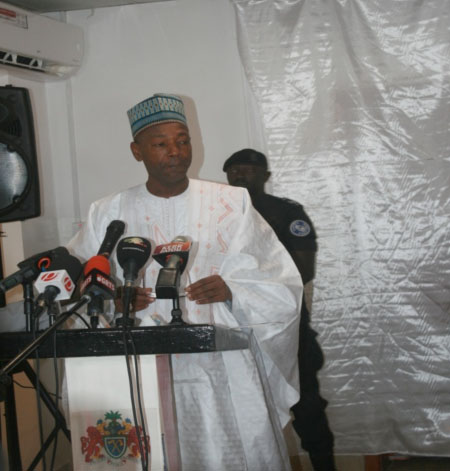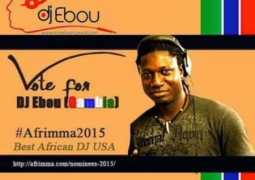
The
next edition of the International Roots Homecoming Festival billed for December
2020 has been given a nod to take a new look with a standing National
Organising Committee. The committee is charged with the successful hosting and
celebration of the event after its 12th edition was held in 2016.
The
minister of Tourism and Culture, Hamat N.K. Bah, made this known during the
inaugural ceremony of the newly appointed twelve members of the NOC headed by
Njie Nyang. The ceremony was held at the Gambia Tourism and Hospitality Institute
(GTHI).
As
the new NOC members are ready to do everything possible in consultation with
the Ministry of Tourism and Culture to get the targeted source markets from
around the world, Minister Bah re-echoed that “the festival will have a new
look and orientation and spread to all the corners of the country.”
The
minister disclosed that the aims and objectives of the festival remain the
same; including reuniting the peoples of African descent with Africa. The event
will also promote The Gambia and her cultural, historical and traditional
values; to further encourage cultural tourism and investment in The Gambia in
particular, and Africa in general.
Also,
it is to forge closer ties between The Gambia and Pan African peoples, for
meaningful mutual co-operation and development. It is geared to promote,
enhance and encourage African unity amongst Africans in the Diaspora and
Africa; establish the truth about the history of Africa and the experiences of
its people using the vehicle of African arts, culture, music and dance which
are integral.
In
addition to the aims and objectives, Minister Bah said the festival is meant to
provide the basis for the establishment of an African Diaspora Heritage Centre
in Juffureh – the quintessential home of the African Diaspora as personified in
Kunta Kinteh, “the fore father of the late African American writer, biographer
and historian – Alex Haley.”
Int’l
Roots Homecoming Festival
In
brief, the International Homecoming Roots Festival is a unique festival not
only in Africa but throughout the world as it brings African children in the
Diaspora together and avails them the opportunity to trace their origins and
backgrounds.
The
festival also avails participants the opportunity to discuss common problems as
Africans and also showcase the country’s cultural assets in diversity. Above
all it is used to celebrate African forefathers who were taken under duress as
slaves to work in plantations in different western countries in Europe and
America some hundreds of years ago.
The
last edition of the festival was held in 2016 before it was suspended “in order
to make it more sustainable, viable and rewarding.



